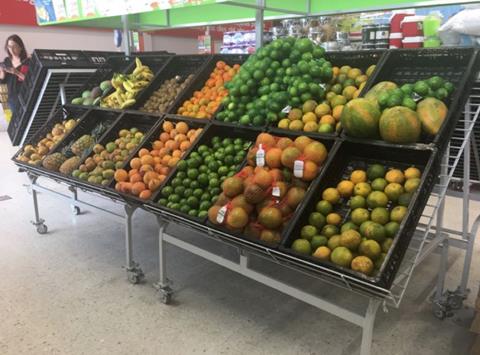Ifco highlights independent life cycle assessment that suggests reusable packaging cuts CO2 emissions by 62 per cent compared to single-use packaging
A new independent life cycle assessment (LCA) has said that Ifco reusable packaging containers (RPCs) ”significantly outperform” single-use packaging in key sustainability metrics.

Ifco explained that it commissioned the Fraunhofer Institute for Building Physics to conduct the peer-reviewed comparative study in accordance with international standards.
The study showed that, taking the full life cycle into account, compared to single-use packaging Ifco RPCs had a lower carbon footprint and ”saved natural resources”.
”The results reflect Ifco’s longstanding commitment to continuously improve and share the efficiency and environmental benefits of the Ifco SmartCycle circular pooling model,” the group stated.
“In the process, Ifco empowers all stakeholders to embrace the circular economy and make the fresh grocery supply chain sustainable.”
Comparative LCAs were ”complex to undertake” Ifco said, but were described as an essential component of its ESG Strategy.
Such studies helped to identify and define the decarbonisation levers and milestones that supported Ifco’s goals of becoming a net-zero, zero-waste business by 2040, it commented.
The study found that, over the entire life cycle, Ifco RPCs were found to consume 69 per cent less water, generate 96 per cent less waste, consume 59 per cent less energy and generate up to 62 per cent less CO2e, an improvement from 60 per cent in 2018.
Iñigo Canalejo, vice president ESG and strategic marketing at Ifco, highlighted the vital role of independent, peer-reviewed comparative LCAs for customers and product development.
“Providing scientifically verified data on the sustainability of our reusable packaging compared to single-use packaging gives our customers the confidence that Ifco RPCs are the best choice for their supply chains,” he said.
”This latest independent life cycle assessment confirms that our continuous improvements are delivering impactful, measurable results.
”With up to a 62 per cent reduction in carbon emissions along with significant savings in water use, energy consumption and waste, Ifco RPCs are essential in making the fresh grocery supply chain sustainable,” he added.
The 2024 comparative life cycle assessment, commissioned by Ifco, updated a 2018 study by the Fraunhofer IBP and built on the first LCA conducted in 2004.



